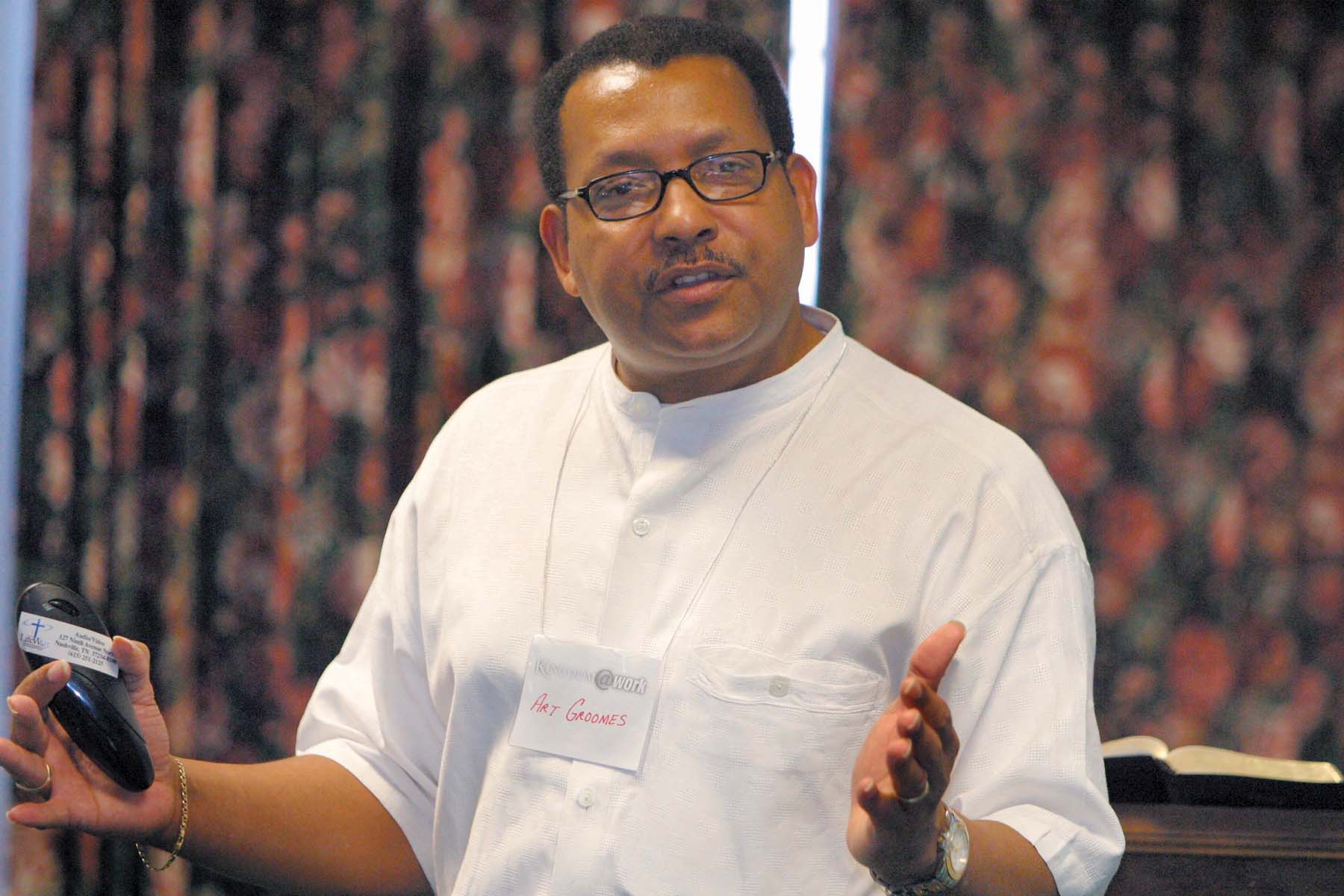
GREEN LAKE, Wis. (BP)–In ministry, conflict is sure to surface and it’s not always bad.
“There are some things that can be helpful and some good that can be achieved if we handle it well,” said Art Groomes, pastoral ministry specialist in the church resources division of LifeWay Christian Resources of the Southern Baptist Convention.
Conflict creates a challenge, Groomes said, and moving forward depends on trusting God. Conflict handled appropriately can lead to growth and a refocusing of God’s Great Commission, he added.
Groomes discussed the realities, perspectives, forms and stages of conflict as part of a conference dealing with resolving conflict within the church during the Kingdom@Work Leadership Development event July 1-5 at Green Lake (Wis.) Conference Center.
While conflict is a necessary part of life, church leaders need to learn to deal with the tensions it causes in a more positive manner, Groomes said, noting that differences arise in the church simply because many different kinds of people take part in various areas and ministries.
“We want to deal with it in a way that’s constructive, not destructive,” Groomes said. “We want to deal with it in a way that brings honor to the Lord.”
Conflict doesn’t simply go away on its own and shouldn’t be ignored, he said, because it can drastically affect worship and tarnish a church’s witness to the world.
“Conflict impairs the witness of the church,” he said. “A lot of times newcomers will recognize that. People we are inviting — they will know it and they won’t return. Why not confront that and resolve it so that there’s an atmosphere where people want to be accepted?”
Conflict is marked by five stages, Groomes said: tension, role dilemma, blaming, confrontation and adjustment.
It is important to evaluate the potential for conflict and address it at the earliest stage, he noted.
Different forms of conflict can exist, particularly intrapersonal, interpersonal and substantive, he said, citing the Bible as a source of answers for how to handle internal conflict, particularly Matthew 5.
“Go to the opposing individual,” he said. “Invite other people to help you in that process. And [if the conflict is not resolved] we need to tell the matter to the body. We need to communicate it to the body of Christ.”
If these biblical steps don’t resolve the situation, Groomes discussed the reality of obeying God’s Word.
“Then, we deal with the offender as one who is outside of the family of God,” he said. “Are we trying to be mean? No, that’s not the goal at all. … We want to bring resolution. We want to bring this thing to a positive end. We are not trying to hurt anyone…. We want the body of Christ to move forward in a cooperative fashion.”
Groomes suggested several guidelines for the conflict resolution process:
— withdrawing from conflict with integrity when emotions run high.
— sharing accurate information.
— identifying areas of agreement.
— examining the issues.
— celebrating workable solutions.
— reviewing solutions progress.
“Conflict may never be a bucket of fun,” Groomes said. “It may never be a barrel of laughs, but I believe it is an opportunity for good rather than evil.”
Approximately 300 people attended the Kingdom@Work conference sponsored by LifeWay’s church resources division.
–30–
(BP) photo posted in the BP Photo Library at http://www.bpnews.net. Photo title: REDEEMING CONFLICT.

















